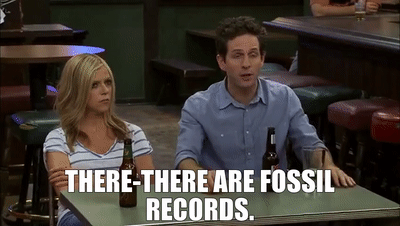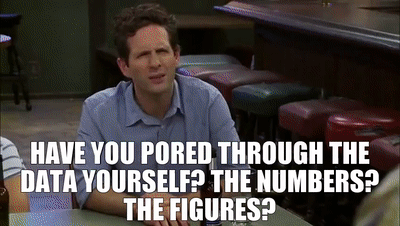-
Ever wanted an RSS feed of all your favorite gaming news sites? Go check out our new Gaming Headlines feed! Read more about it here.
Do you randomly read scientific papers?
- Thread starter Magni
- Start date
You are using an out of date browser. It may not display this or other websites correctly.
You should upgrade or use an alternative browser.
You should upgrade or use an alternative browser.
Same. I'm reading a proof right now for a paper I am a co-author on. Fun? Not really.
Same. I'm reading a proof right now for a paper I am a co-author on. Fun? Not really.
Kind of random, but what are your thoughts on Sci-Hub?
No. I read enough scientific papers for work. No time or patience for miscellaneous random ones.
I haven't given it much thought personally, since I'm at a big enough university that accessing papers through official means has rarely been an issue.
If I were emperor of the world, I would make everything open-access and come up with mechanisms to take the cost burden off of authors and readers. It's pretty sad that knowledge ends up locked behind $39.99, and it's not like it helps me as an author to make it harder for people to read my work.
Sure, but mostly it's part of my job. I'd say it's for fun only if it's not something I need to learn right now for my research.
Yeah, I read papers pretty often, both randomly and for work.
The work-related stuff (all STEM) isn't particularly fun. I don't mind it overall but they are generally very dry technical papers and they aren't always well written, even when the underlying content is solid. Occasionally I'll come across something really fascinating but most of the time I want to learn something specific and move on.
The stuff I read for fun is generally way outside my field, most often in the social sciences. They can be very interesting and are often misrepresented in the media for the sake of clickbaity headlines so I'll read them out of sheer personal interest.
The work-related stuff (all STEM) isn't particularly fun. I don't mind it overall but they are generally very dry technical papers and they aren't always well written, even when the underlying content is solid. Occasionally I'll come across something really fascinating but most of the time I want to learn something specific and move on.
The stuff I read for fun is generally way outside my field, most often in the social sciences. They can be very interesting and are often misrepresented in the media for the sake of clickbaity headlines so I'll read them out of sheer personal interest.
All day every day for work. My job requires it. For fun? No. Not anymore.
When I was in school I did a lot because I wanted to find out what I wanted to pursue in grad school, but once I abandoned that track, I stopped.
I have boxes of papers at home still that I had printed and never got through.
When I was in school I did a lot because I wanted to find out what I wanted to pursue in grad school, but once I abandoned that track, I stopped.
I have boxes of papers at home still that I had printed and never got through.
Yep, i have extensive collections of a few of the review journals (Nature, Physical Review Letters, Journal of High Energy Physic, Neural Net., Artif Life...), keep up to date with CERN experiments (specially Atlas) , and otherwise crawl Arxhiv.org on many subjects.
I have dedicated at least 2 hours a day for 23 years after work to study papers in my fields of interest.
I have dedicated at least 2 hours a day for 23 years after work to study papers in my fields of interest.
im not sure what you're saying when you say theyre wrong, they're just reporting their data
are you saying theyre lying in their papers? because that's a serious accusation
it's more likely the layman can't interpret what they're saying effectively, specifically how important or widespread the result could be

Why Most Published Research Findings Are False
There is increasing concern that most current published research findings are false. The probability that a research claim is true may depend on study power and bias, the number of other studies on the same question, and, importantly, the ratio of true ...
It's not as simple as "just reporting their data." Most scientists are not intentionally lying (although I do know of a professor who pressures their students to "nudge" their results). Even in my field that is more towards "hard science" and doesn't rely on statistical testing, there is just a lot of bad published work out there. They make unjustified assumptions, are poorly executed, and/or make overreaching statements/conclusions. There is a strong pressure to publish at many institutions and thus, there are just so many papers out there. One part of becoming an "expert" is learning how to filter out or pull out only the good aspects of these papers.








